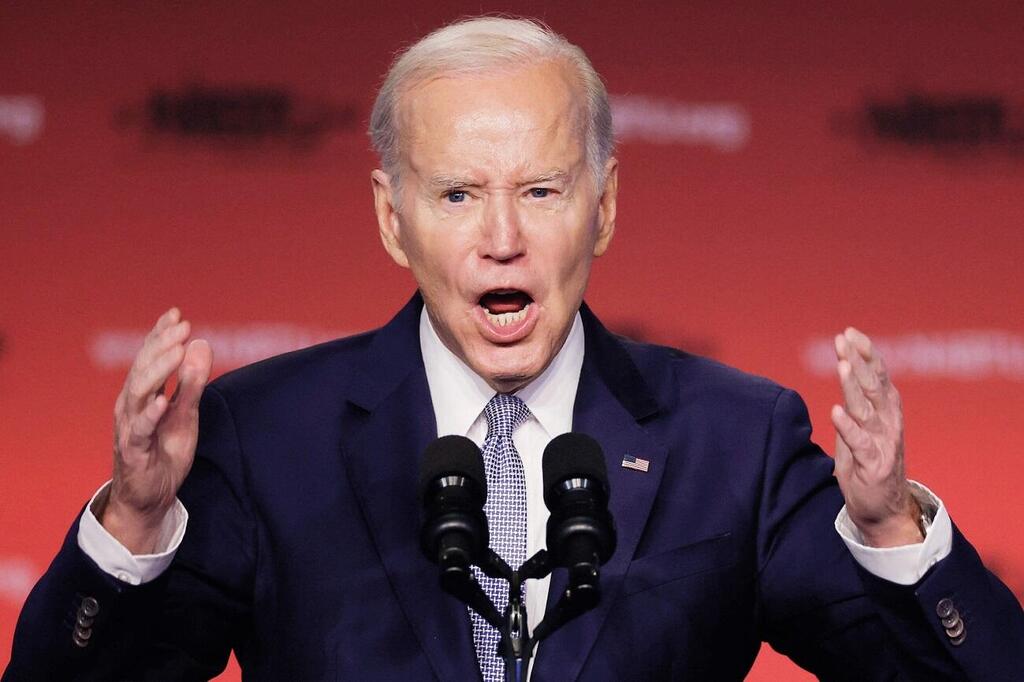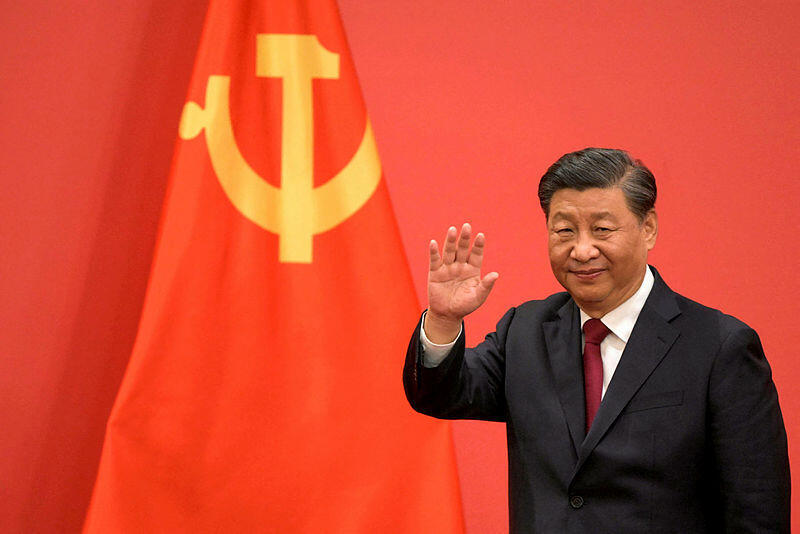Last week, Speaker of the U.S. House of Representatives Kevin McCarthy visited Israel. McCarthy has yet to establish himself as a powerful force in Washington, in contrast to his Democratic predecessor Nancy Pelosi, or even his fellow Republican from a bygone era, Newt Gingrich.
Other stories:
When he tried to get elected, the far-right wing of his party put him through a humiliating process that made Cersei Lannister's march of shame in Game of Thrones look like a lovely walk in the park. I hope that the humiliations he suffered at the hands of his fellow Republicans prepared him well for the reception he received in the Knesset, but I'm not sure.
3 View gallery


Speaker of the U.S. House of Representatives Kevin McCarthy in the Knesset
(Photo: Alex Kolomoisky)
McCarthy, despite his relative weakness, is still the head of the House of Representatives in the world's only superpower; it is the same Congress that has approved more aid for the State of Israel throughout its existence than any other country.
For example, have you ever seen the prime minister (or president) speak in front of the U.S. Congress while the vice president shuffles through the hall to find a seat mid-speech? I don't think so. At least four ministers were late to the Knesset plenum.
They crossed the chamber repeatedly as if McCarthy was some backbencher on his first speech. Is it really too much to expect from two inexperienced freshmen ministers like May Golan or Itamar Ben-Gvir, whose arrival at the Cabinet table is not exactly a source of national pride, to not embarrass Israel?
I know what you're thinking: it's ridiculous to expect that. And you're right.
During his visit, McCarthy said that if U.S. President Joe Biden does not invite Prime Minister Benjamin Netanyahu to the White House, he would invite him to Congress; in fact, it is a recreation of Netanyahu's controversial appearance before the U.S. Congress during the Obama administration. This has attracted a lot of attention in our political system.
However, McCarthy's more important and strategic statement dealt with China. "Today our innovation is at risk because of a new threat: the Communist Party of China. They may be trying to present themselves as promoters of entrepreneurship, but in reality, they behave like thieves. We will not allow them to steal our technology." He "recommended" that Israel increase its supervision of foreign investments.
McCarthy's recommendation to Israel can be summarized as follows: "Watch your pretty eyes; would be a shame if something happens to them. Don't work with the Chinese; it would be a shame." In other words, it appears that McCarthy is running out of patience. As speaker of the House, he has decided to focus on blocking China's expansion. Just last month, he hosted Taiwan's president Tsai Ing-Wen, which caused regional tensions with Beijing.
This is just the beginning. The United States, which is somewhat bipartisan on this issue, sees China as its most significant strategic threat. President Biden has made blocking China a central pillar of his foreign policy.
The chip war, which the United States initiated ostensibly to block sensitive technologies with military applications from China, is an overt attempt to quash the entire Chinese tech industry, and the competition that Beijing poses for American production - which the Americans regard as unfair and exploitative.
It is difficult to enumerate the number or severity of sanctions that the Americans have placed on trade and business with China, but the trend is entirely clear.
There's something deeper here, of course. The American political reality is characterized by toxic tribalism. The national fabric that connected an American who lives in a big city on the West or East coast to someone from Texas, Ohio, and definitely Alabama or Tennessee - is weak and getting weaker. The Americans are heading to the 2024 elections, and as it stands, the two major parties are likely to choose elderly politicians, and not too popular ones at that.
However, there is no shortage of common enemies outside of the United States, thankfully. Support for Ukraine cuts across party lines, not only because of Ukrainian President Volodymyr Zelensky's and the Ukrainian people's heroism, but also because of Russian President Vladimir Putin's threat.
Russia, despite its bluster, is a small and weak country compared to the United States (for example, Texas alone has a bigger economy than Russia's). China is the real deal. It presents a strategic threat to the U.S. with its size, population, civilization, and its ability to demonstrate a model of economic and technological development.
While it is a poorer country than the U.S. in per capita terms, President Joe Biden has taken a new approach in his last year in office - China as a global power. The visit of Chinese leader Xi Jinping to Saudi Arabia at the end of last year marked this transition.
China is no longer focused solely on its own affairs, but is combining economic, international, and military power to achieve long-term goals. It is only a matter of time, for example, before the Chinese begin offering their assistance in the Israeli-Arab conflict.
The message from the United States to its ally is becoming increasingly clear and is set to become even clearer: if you're on our side, you must align with Washington's policy towards China. This does not mean destroying the global economy, ignoring China's strength in production, or demanding a severing of relations.
The Americans are determined to draw the lines for Beijing, while China, for its part, is unwilling to agree to such restrictions. This is causing the Chinese to experience the national trauma of the "Century of Humiliation," during which the West maneuvered and subjugated China.
Carice Witte, CEO and founder of the SIGNAL Group, which deals with Israel-China relations, says that "McCarthy's warning about China should serve as a reminder to Israel that it needs to reassess the balance of interests and risks with China. Technology is at the forefront of the United States' concerns, but China's relations with Iran and involvement in the Palestinian issue should also be taken into account as Israel secures its national interests."
Israel needs a clear strategy - one that will prevent unnecessary conflict with China but ensure that the U.S. stands by its side. Building such a strategy is a significant step that requires expertise, sensitive management of relationships, and hard work. The current government is far from that. At best, it is putting out fires - fires that it often started itself.



